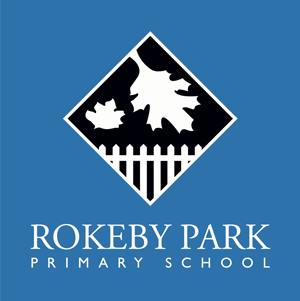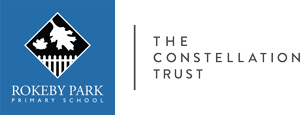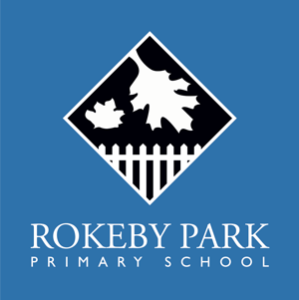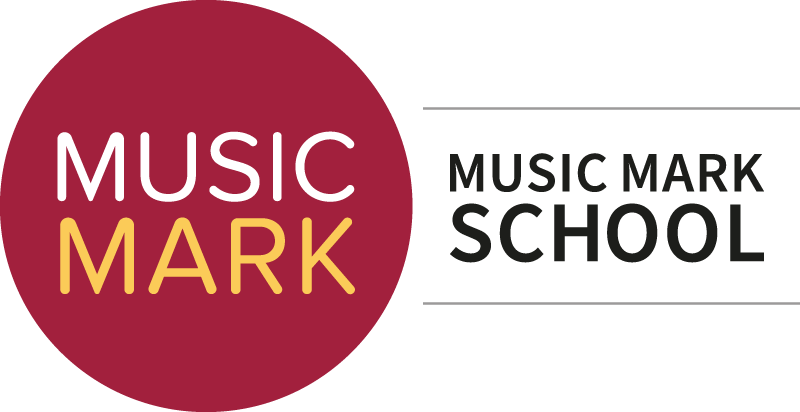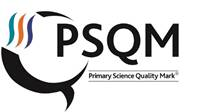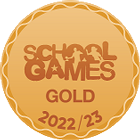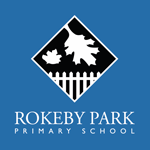
Curriculum Vision Statement
At Rokeby Park Primary School teaching and learning are at the heart of everything we do. We are an inclusive school and believe our pupils have the right to an ambitious, inspiring, challenging, creative and fun curriculum. The curriculum has been developed to ensure it has breadth and depth and is progressive so that it allows our pupils to build their knowledge, whatever their starting point, to enable them to develop to their full potential and ‘aim to be the best they can be’. We have high aspirations for all our pupils and believe that every single one of them can achieve this.
To help us to achieve our curriculum vision we have developed four curriculum drivers which are closely linked to our school values and aims. The curriculum drivers are the golden threads that run through our curriculum and respond to the particular needs of our school community.
Curriculum Drivers
Basic Skills – to develop the building blocks for lifelong learning.
- Pupils develop their language and communication skills and use the correct grammar and speak confidently.
- Pupils become fluent, confident readers and have a thirst for reading.
- Pupils engage with high quality texts throughout the curriculum.
- Pupils develop their vocabulary due to the high quality texts used throughout the curriculum.
- Pupils become confident writers, using the correct spelling, grammar and punctuation.
- Pupils become competent mathematicians and can use and apply their knowledge to reason and solve problems.
Diversity and spirituality – to help pupils understand their roles, rights and responsibilities as citizens in the local and global community.
- Pupils are tolerant, respectful and value differences in others.
- Pupils can self-regulate and make appropriate choices.
- Pupils develop their spiritual and cultural awareness and show respect.
- Pupils feel safe and secure and develop a good level of confidence and independence.
- Pupils engage with a high quality PSHE curriculum.
Possibilities – to encourage our pupils to have aspirations for the future, realise the opportunities that are available to them and be inspired by good role models and high quality experiences.
- Pupils can confidently talk about their strengths and what they would like to improve.
- Pupils have a good understanding of the possibilities available to them and talk about what they would like to do when they leave school.
- Pupils talk about the experiences they have had in school and how these have inspired them.
Wellbeing – to help pupils develop confidence, motivation and self-belief so they have a firm foundation to build from.
- Pupils are mentally and physically healthy.
- Pupils have good levels of self-esteem.
- Pupils understand their emotions, can self-regulate and make appropriate choices.
- Pupils have strategies to help them overcome difficulties.
- Pupils understand how to have healthy, safe relationships with others.
- Pupils show respect for others.
Curriculum Intent
We have designed an ambitious school curriculum which will support all our pupils to develop their knowledge, skills and attributes for learning, life, and in the future, work. We know our community and our pupils and understand the challenges and barriers they may face, so we have developed our curriculum to address these. The curriculum is sequenced to enable our pupils to build on what has been taught before and to enable them to develop their knowledge and skills towards defined end points for each subject. We have considered possible delays and gaps in learning and have planned to ensure the most important elements are taught to ensure logical progression in each subject. Making sure the curriculum meets the needs of our pupils helps to ensure they are passionate and motivated to learn, enjoy coming to school and take pride in themselves.
The curriculum is based on the national curriculum and has been adapted to ensure it is relevant to our context. Reading is at the heart of our curriculum and our aim is to ensure that all pupils read at an age appropriate age. We teach early reading using a systematic phonics scheme and high quality texts are used as a basis for themes. Our curriculum is coherently planned using progressive objectives, from Early Years to Year Six, for all subjects to ensure pupils develop their knowledge and remember and know more over time. Our curriculum is structured to ensure that by the end of Key Stage One, pupils have developed their communication, language and social skills alongside the core skills of reading, writing and mathematics, to enable them to fully access a broad and rich curriculum at Key Stage Two.
Pupils from more disadvantaged backgrounds and those with SEND have access to the school’s curriculum, and although this may be adapted to meet their individual needs when necessary, it is ambitious and helps to ensure pupils develop their knowledge, skills and abilities to enable them to apply what they know and can do with increasing fluency and independence.
We have a rich PSHE curriculum which enables pupils to be safe, healthy and confident and to develop a level of resilience so that when they find things difficult, they keep trying and don’t give up. Through our PSHE curriculum our pupils are also taught about relationships and sex education in an age appropriate way. Pupils are taught religious education in line with the locally agreed syllabus. We recognise the importance of keeping healthy in both mind and body. Our PE curriculum provides our pupils with positive experiences of physical activity and sport. We believe this will help to develop good habits for life.
The curriculum ensures our pupils have experiences and opportunities to help them develop into educated citizens. We are ambitious for our pupils and introduce them to the best that has been thought and said so they develop an appreciation of human creativity and achievement. We plan our curriculum so that it ensures all pupils have opportunities to take part in a range of high quality and well-chosen experiences and activities in school and the community, to ensure they are supported to develop their cultural capital.
Curriculum Implementation
English and Mathematics are taught daily and the foundation subjects are planned using overarching themes, and when possible, links are made between subjects. Subject leaders have developed ambitious, clearly sequenced schemes of work based on appropriate pedagogy for each subject, to ensure effective teaching and learning across the school. To ensure there is clear progression across the school, each scheme of work builds on prior knowledge and towards clearly defined end points. Subject leaders have identified subject specific key concepts which are built on as pupils progress through the school. Second order concepts have also been planned throughout the curriculum so that these can be revisited across a range of subject areas. Knowledge is consolidated and built upon through planned retrieval and recall opportunities in lesson sequences.
Teachers work with subject leaders to ensure schemes of work are delivered effectively and that quality first teaching is in place. Lessons have clearly defined outcomes and pupils are taught using effective teaching sequences which include modelling, scaffolding, guided practice, independent work and feedback. Teachers assess pupils work and identify any misconceptions so that these can be addressed. Assessment is used to check whether pupils have gained the intended learning during lessons and to inform future teaching. Teachers understand that for pupils to learn, knowledge and skills need to become embedded in long-term memory. To ensure this happens all lessons are planned to build on what has been taught before and work towards defined end points. Teachers ensure pupils have a secure understanding of the learning intention and can use and apply their knowledge and skills fluently and independently. All teachers are supported to develop expert subject knowledge through high quality CPD, both from within school and from external providers.
Curriculum Impact
Learning can be defined as an alteration in long-term memory. Teachers use assessment to ensure our pupils have gained the intended knowledge and skills, can use these effectively and know more, remember more and are able to do more. The impact of our curriculum can be seen in the work produced by our pupils and by considering the progress they are making in line with the defined end points identified in our curriculum. Our pupils develop the knowledge, skills and cultural capital needed to ensure they successfully progress onto the next stage in their education and life and develop into responsible, respectful and resilient citizens.
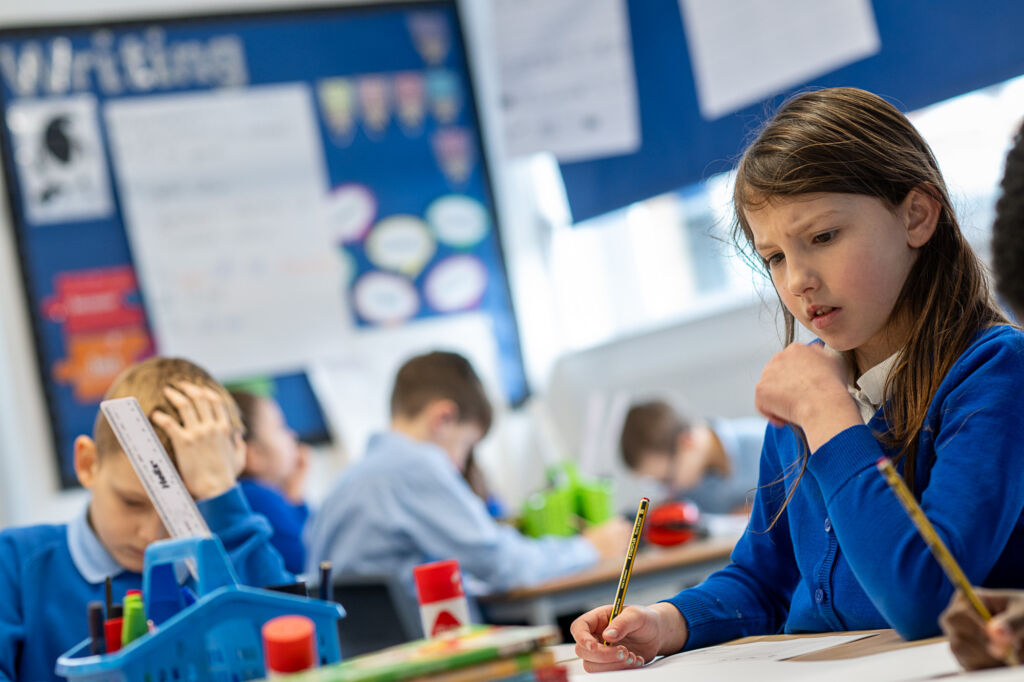
‘My best memory was when it was Rokeby’s got talent and at the end the teachers all got up and danced’
‘started here in Year 5 and I’ve enjoyed everything at Rokeby Park Primary – it’s the best.’
‘I’ve really enjoyed the hard work we have been given in maths.’
‘I love English because it brings my imagination to life’
‘Maths is my favourite subject because I enjoy the challenges we are set.’
‘I’ve enjoyed all the learning I’ve done in school and I’ve made lots of brilliant friends.’
‘Being here for 5 years (almost my whole life) makes me feel special its almost like home’
‘All school trips are amazing, especially Robinwood.’
